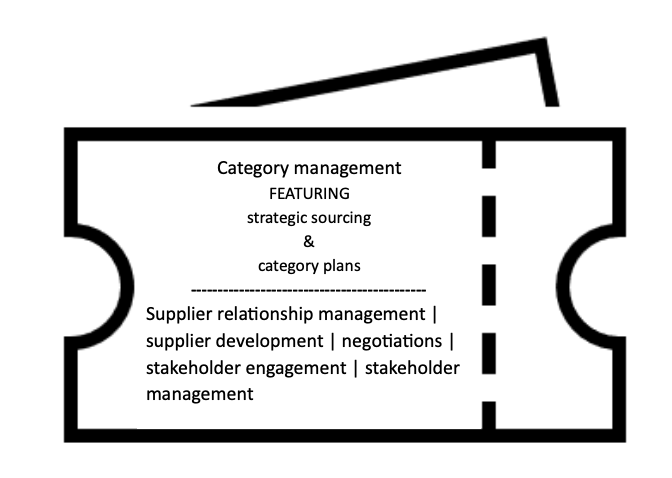Updated Mon Mar 18 2024
How to be effective in your next procurement interview
Hey you’s, let’s talk interviews!
I’m going to gloss over the more generic stuff (body language, etiquette etc.) and focus on the nitty gritty of a procurement specific interview.
The big-ticket items on the procurement agenda are:
 Make sure you brush up on these topics. Get good, solid examples in order, and be ready to dive into the detail of these examples when the opportunity arises. We all like to hear a success story, so put your storytelling to the test, and take your interviewer along for the journey. Really aim to get their buy in when you’re talking through your examples – and make them appreciate just how good a procurement professional you are!
Make sure you brush up on these topics. Get good, solid examples in order, and be ready to dive into the detail of these examples when the opportunity arises. We all like to hear a success story, so put your storytelling to the test, and take your interviewer along for the journey. Really aim to get their buy in when you’re talking through your examples – and make them appreciate just how good a procurement professional you are!
But… where I really want to focus this article, is soft skills. I cannot oversell their importance in the procurement world! You get those right, and the majority of the big-ticket items fall into place. Soft skills get the most out of your audience – whether this may be in a tense negotiation or building rapport with a stakeholder. Everything from managing and defusing conflict, to harbouring effective, close working relationships can be done more easily and effectively if your soft skills are on point.
We want to humanise procurement, become trusted advisors and strategic partners, who’s opinions our stakeholders value and actively seek out. This brings so much value in removing blockers, gaining early buy in, aligning cross functional goals and highlighting the value procurement can bring (to name but a few). So, where better place to start than straight away – at the interview itself? Highlight those soft skills and make yourself stand out to the interviewer.
For those of you that are nervous about the interview process, remember this is totally normal! It shows you care about the job you’re going for, it also shows that you are human. And, although it may not seem it ahead of time, your interviewer is too. If you feel as though the pressure of the process might get the better of you, prepare and take notes in with you. Start off the process after introductions by saying – hope you don’t mind but I have brought some notes with me today. In all the times I’ve seen this done, it has only ever been viewed in a positive light.
Taking such nervousness into account, when I’m the one doing the interviewing, I like to take a less formal approach. This may seem controversial, but I’ve found that it leads to a more relaxed atmosphere and more openness from the candidate (whether they’re nervous or not), making the interview process more of a two-way dialogue than a question-and-answer session. It gives a much better sense of who you’re interviewing: what are their passions and interests, what drives them, what would they look for in a role and in a company, are they a good fit for the team, and crucially, do they have the soft skills needed to get the most out of their stakeholders and their suppliers in turn.
In terms of skills and experience, this isn’t to be played down at all! But you do get a fair sense of a candidate’s level of exposure to the field from their CV – especially if they give examples of successes and projects in theirs.
And lastly – read that job spec! There are such a wide range of procurement roles out there, so be aware what you’re applying for and whether it’s the right step for you. Prove this to your interviewer by coming up with examples pertinent to the JD itself.
If it’s a no – see it as a not right now. Feedback is crucial so that you know where to focus your efforts next time.
Similarly – feedback on my first post for the Procurement Space gratefully received!